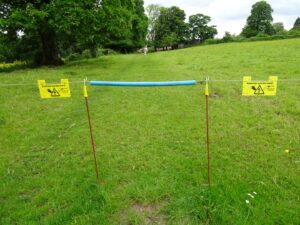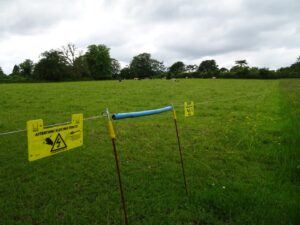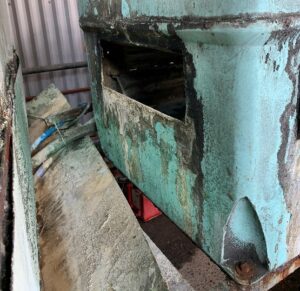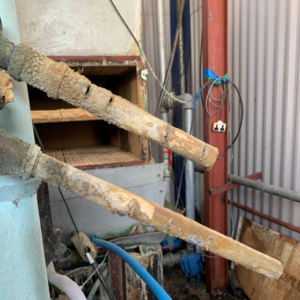Wiltshire land owner fined after public attacked by cows in two separate incidents
A Wiltshire landowner has been fined £15,000 after members of the public were seriously injured by cattle while walking along footpaths on his estate.
Sir Charles Hobhouse pleaded guilty to health and safety failings at his Monkton Farleigh Estate in Bradford-on-Avon.
It follows two separate incidents in summer 2021 in which people using public footpaths on his land were attacked by cows.
Retired military officer Michael Booley was walking his dogs with his wife Joanne and their friend Josian Gauld on 5 June 2021. They found the public right of way blocked by an electric fence and no alternative route provided. After carefully negotiating a fence to continue along the path, the trio were approached and attacked by several cows.
Mrs Booley suffered serious injuries including a fractured shoulder and broken ribs.

Mr Booley, 57, said the attack was ‘horrendous’ and that he felt ‘powerless’ to protect the pair from the aggressive herd.
“Experiencing battle as a solider is different to being attacked out in the countryside when on a leisure walk on a public right of way,” he said.
“I witnessed my wife being relentlessly stamped on and head butted by the cows and at one stage she was not responding.
“I also witnessed my friend desperately trying to find cover behind a tree and fighting the attacking cows with her rucksack as they attacked her from both sides.
“I still have nightmares about it.”
An investigation by the Health and Safety Executive (HSE) found Sir Charles Hobhouse had failed to ensure the risks to members of the public were controlled, including where possible, that cattle with calves were suitably segregated from the public footpath. HSE has advice for farmers, landowners and other livestock keepers on dealing with the risks posed by cows with calves.

Despite being formally instructed to implement controls to prevent a similar incident, a second attack occurred weeks later on 19 August 2021.
Local builder James Johnson was out for an early morning run with his dog along the footpath when he was attacked by cattle shortly after 6am.
“I remember the incident clearly,” the 42-year-old said.
“There were two groups of cows, one of which was running fast towards me and the other coming from a different direction.
“When I realised what was happening I let the dog go and started to run.
“The cattle ran into me and knocked me onto the ground, where I was trampled, pushed and head butted.
“Every time I attempted to get back up, they pushed me back down.
“Near the end, when I was exhausted and hurt, I fell to the ground one more time and remember thinking ‘this is it – this is where I die’.”

Mr Johnson sustained significant injuries including concussion, dislocated shoulders, broken ribs, and broken vertebrae. He was in hospital for several days. On this occasion there had been no measures to segregate the cows from the footpath.
Sir Charles Hobhouse pleaded guilty at Taunton Crown Court to breaching two counts of section 3(2) of the Health and Safety at Work etc Act 1974 on 3 May 2023. At a sentencing hearing at Bristol Crown Court on 8 June 2023 he was fined £15,000 and ordered to pay costs of £8,000.
HSE Inspector Leo Diez said: “Large animals can be a risk to people. Even a gentle knock from a cow can result in injury. Seemingly docile cattle can pose a risk to walkers when they are under stress or feel threatened and can exhibit instinctive maternal or aggressive behaviour.
“Where possible cows with calves should not be grazed in fields where there is a public right of way. Where this is not possible they should be segregated from the footpath by appropriate fencing where it is reasonable to do so.”
Notes to editors
- The Health and Safety Executive (HSE) is Britain’s national regulator for workplace health and safety. We prevent work-related death, injury and ill health through regulatory actions that range from influencing behaviours across whole industry sectors through to targeted interventions on individual businesses. These activities are supported by globally recognised scientific expertise.
- More information about the legislation referred to in this case is available.
- Further details on the latest HSE news releases is available.
- Advice for farmers, landowners and other livestock keepers on dealing with the risks posed by cows with calves is available.

